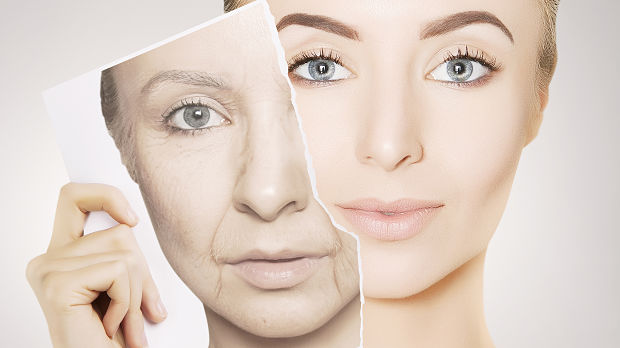As women age their levels of estrogen decline dramatically. Most women will have half the amount of estrogen they started with by age 50, and the levels continue to fall after menopause. It is known that estrogen plays a key role in skin aging, but a recent review looked at how this decline relates to the perception of skin aging and facial appearance.
The review article describes the hormone-related processes behind skin aging. The authors note that the use of hormone therapy demonstrates the powerful influence of estrogen on aging skin; collagen loss can be prevented or reversed in many cases with estrogen hormone therapy and epidermal thickness can be improved with estrogen hormone therapy during the perimenopausal transition along with improvements in elasticity and skin laxity. The authors present data from several studies that correlate estrogen levels with facial attractiveness and youthful appearance.
The results of these support the hypothesis that higher estrogen levels correlate with a younger perceived age and higher facial attractiveness. However, manipulating levels of estrogen through hormone therapy is not without risk, especially those with a cancer history.
The authors suggest that this review points to the need for further research into how estrogens protect against skin aging and enhance facial appearance. They suggest that future research should study the use of selective estrogen receptor modulators to avoid these negative effects on women’s health.

